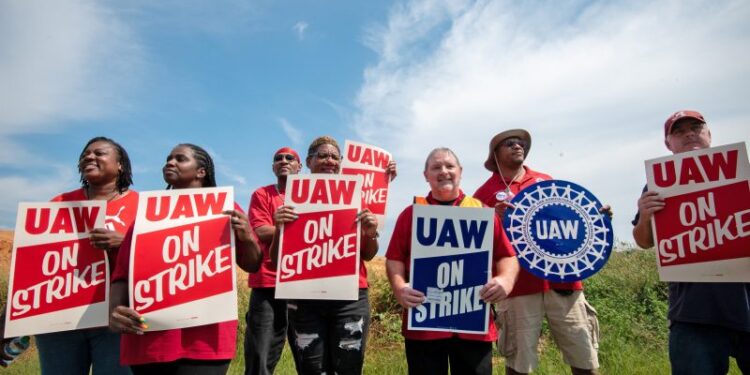As Detroit’s Big Three automakers continue to be embroiled in an ongoing UAW (United Auto Workers) strike, a strike has now begun at a Mercedes-Benz supplier in Alabama. The strike began on September 30, 2019 when workers at Avancez LLC voted overwhelmingly to go on strike following months of stalled negotiations. The factory produces parts for the Mercedes C-Class vehicles being assembled at the nearby Mercedes vehicle plant in Vance, Alabama.
The strike began when workers at the plant showed up for their shift on Monday morning wearing shirts with slogans supporting the UAW strike. Workers were also seen carrying picket signs and chanting slogans supporting the strike. The workers are seeking better wages, increased benefits, and improved working conditions.
The UAW represents the workers and gave Avancez a three-day strike notice on September 25th. On the day of the strike, Avancez workers were joined by union members from the Big Three automakers, as well as the United Steel Workers and Teamsters, in solidarity for the strike.
The strike in Alabama has come as Detroit’s Big Three automakers continue to be under pressure from the ongoing UAW strike ‒ GM, Ford, and Fiat Chrysler Automobiles (FCA) have shut down dozens of factories across the continent. As of October 1st, GM, Ford, and Fiat-Chrysler Automobiles’ factories have been shut down for five weeks. The strike has cost the Big Three automakers an estimated $2 billion in losses, as talks between the union and industry executives have shown little progress.
The workers in Alabama have joined in solidarity with Detroit’s Big Three automakers in the past, including the 2017 UAW strike. That strike lasted two days before the workers at the Avancez factory unanimously voted to end the strike.
The strike in Alabama has the potential to further delay production of the Mercedes C-class vehicles being produced at the nearby Mercedes facility. With the UAW strike ongoing, there have been increasing tensions between the union and automakers. The latest developments in Alabama provide another potential blow to the automakers’ production and profits. If the strike in Alabama is not quickly resolved, it could lead to further disruptions and losses for the automakers.
















